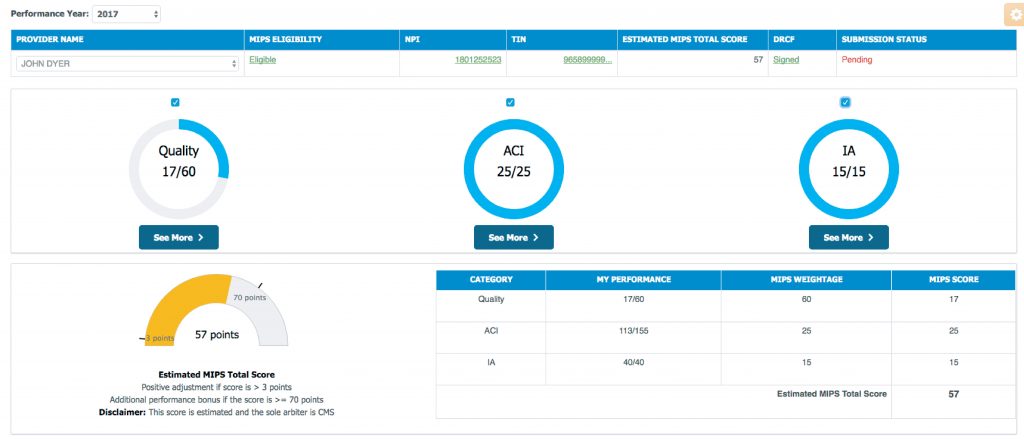Hundreds of rheumatology providers across the country are finalizing submissions for the first year of reporting under the Merit-Based Incentive Payment System (MIPS). According to a presentation at the 2017 ACR/ARHP Annual Meeting in San Diego, providers that participate in and submit through the Rheumatology Informatics System for Effectiveness (RISE) Registry are poised to perform well. The presentation analyzed performance across the three MIPS domains in 2017 for providers participating in the registry. The hundreds in attendance also learned about how the scores for the various MIPS domains are calculated and the advantages RISE provides with regard to optimizing their MIPS scores.
MIPS is one of two pathways laid out under the MACRA legislation to determine payment reimbursements for providers that treat Medicare patients. For the 2017 performance year, more than 3,800 rheumatology providers are expected to report to the Centers for Medicare and Medicaid Services (CMS) through the MIPS pathway.
RISE & MIPS Domains
In her presentation, Jinoos Yazdany, MD, MPH, reviewed the MIPS requirements for 2017 reporting and demonstrated how participation in RISE will positively affect MIPS scores. For 2017, providers reporting through MIPS had the option to not report (which results in a negative payment adjustment of 4%); report only one measure or activity (which results in no negative payment adjustment); submit 90 days of data on all MIPS measures and activities (which results in a neutral or positive payment adjustment); or submit a full year of data on all MIPS measures and activities (which likely results in a positive payment adjustment).
Providers reporting a partial or full year for 2017 are scored on three of the four MIPS domains: quality, improvement activities (IA) and advancing care information (ACI). Reporting in the cost domain will begin in the 2018 reporting year. RISE participants are able to submit their data for all three categories through a new dashboard (see Figure 1) built specifically to help providers track and complete their MIPS reporting requirements as easily as possible.
Together, the improvement activities (IA) and advancing care information (ACI) domains make up 40% of a provider’s final MIPS score, accounting for 15% and 25%, respectively. The vast majority of RISE participants are able to fulfill all the points required under IA because all providers in RISE, a Qualified Clinical Data Registry (QCDR), automatically receive monthly feedback reports, which fulfills a heavily weighted activity. Providers’ performance for the ACI domain is more dependent on the capabilities and use of their electronic health record (EHR) systems. To help document performance, RISE provides a dashboard for providers to enter the necessary data, and RISE participation gives providers a 5% bonus on their ACI points.



